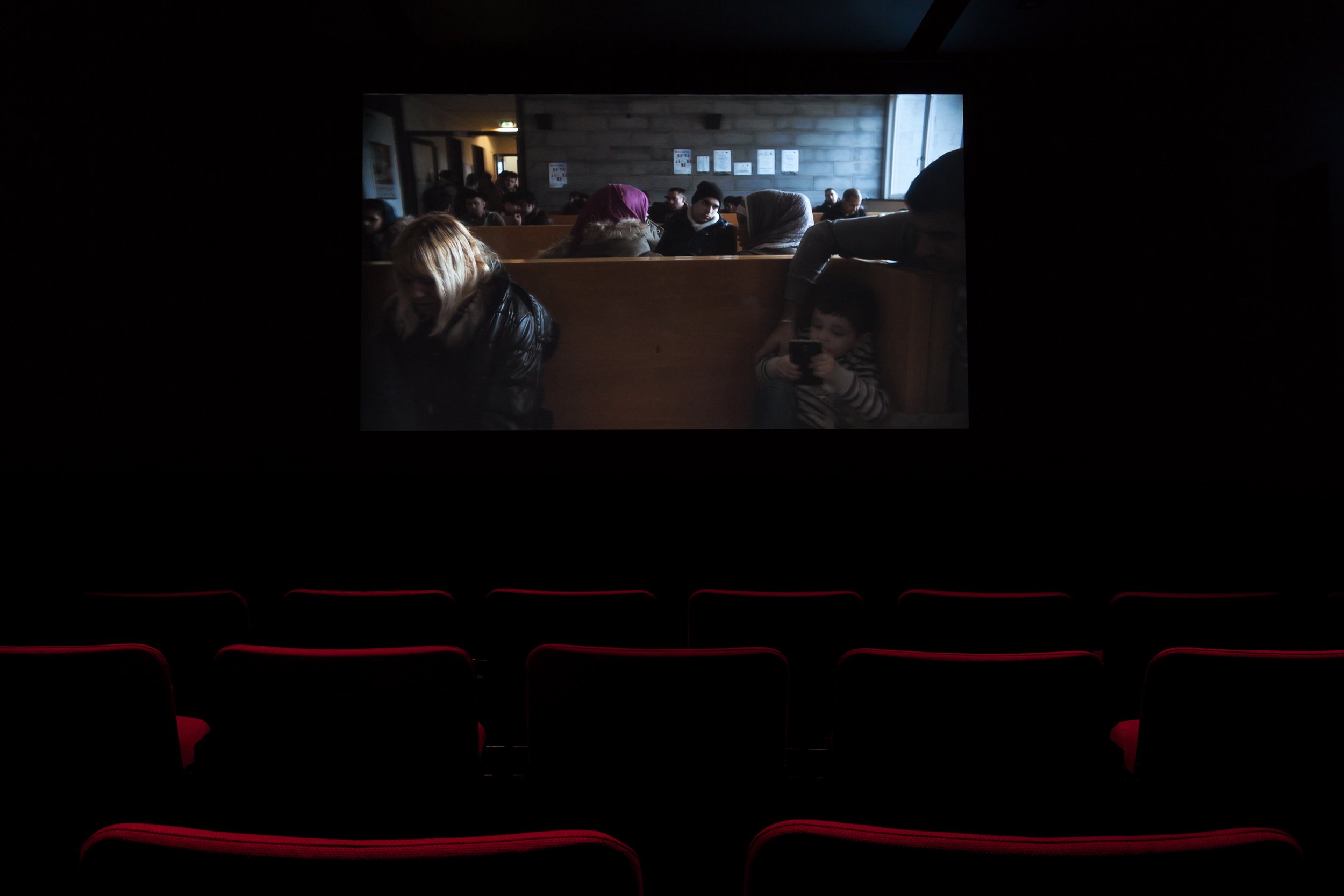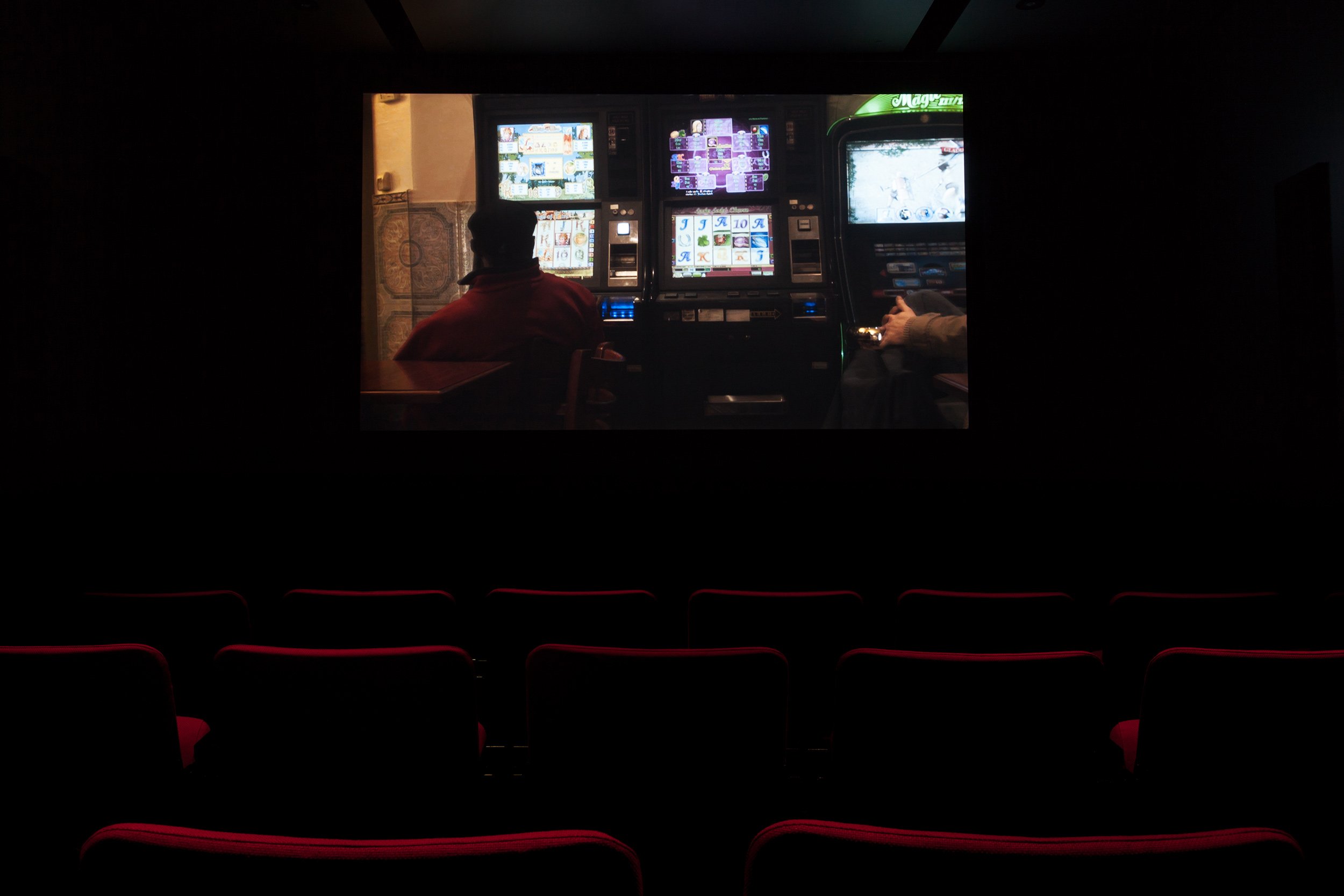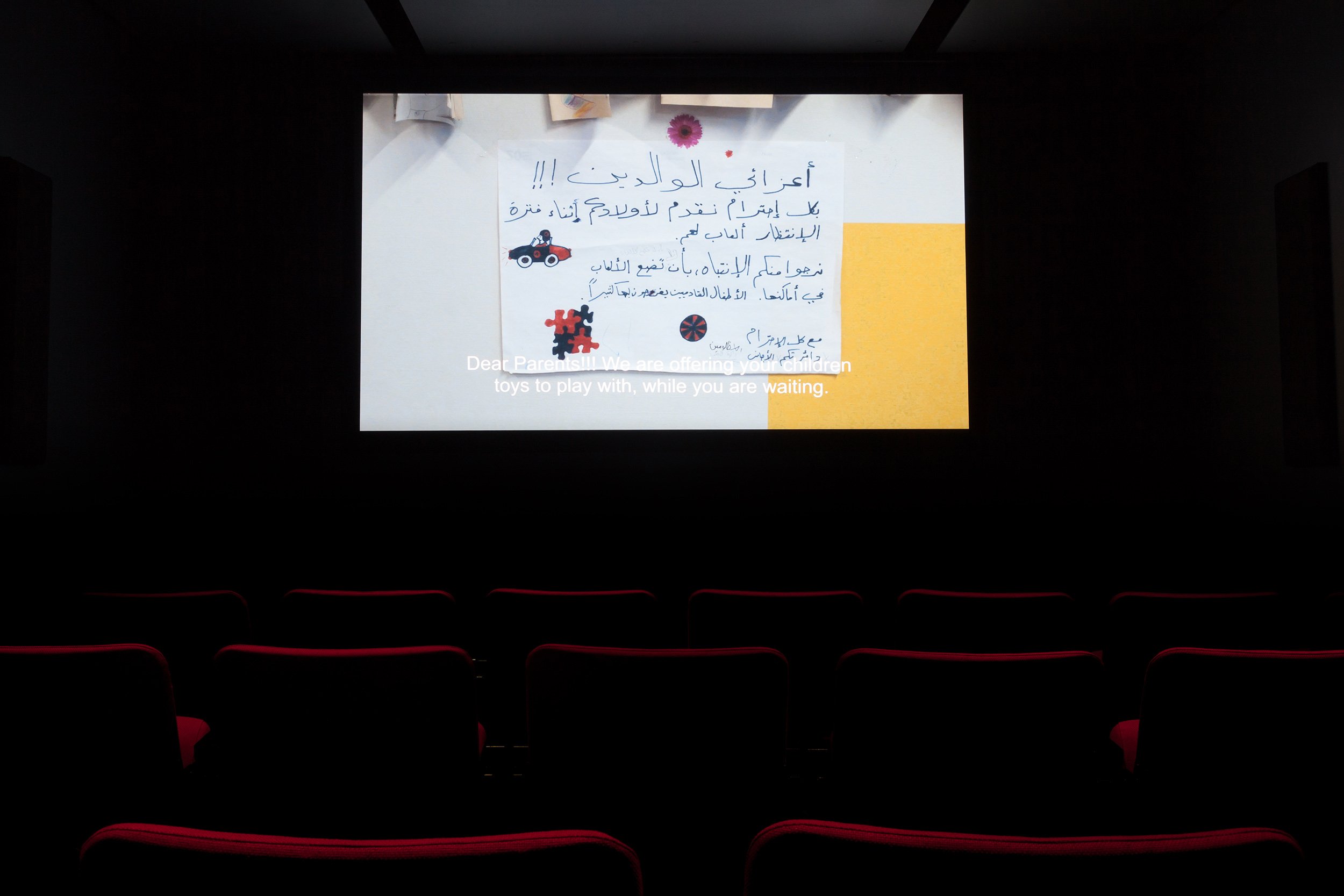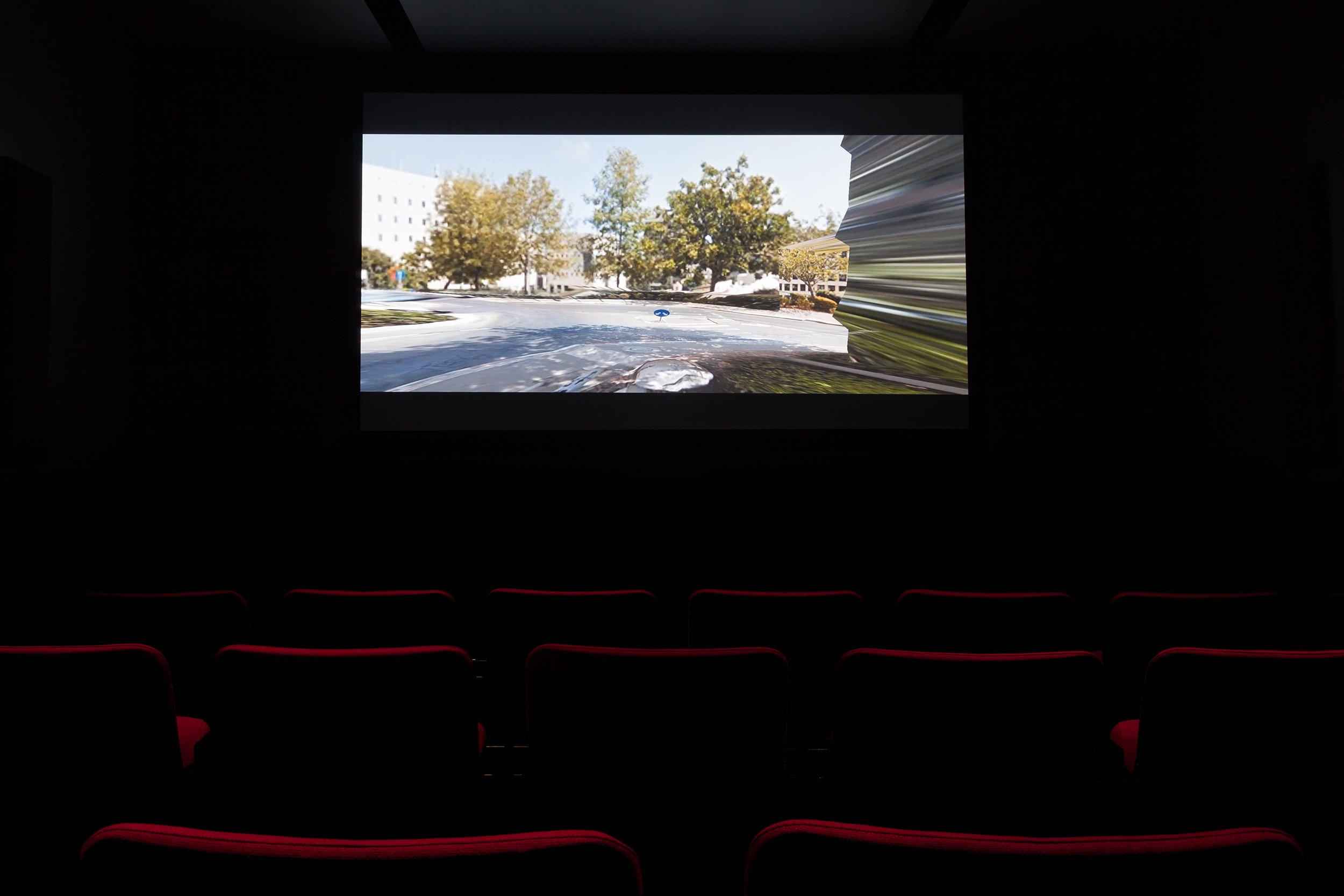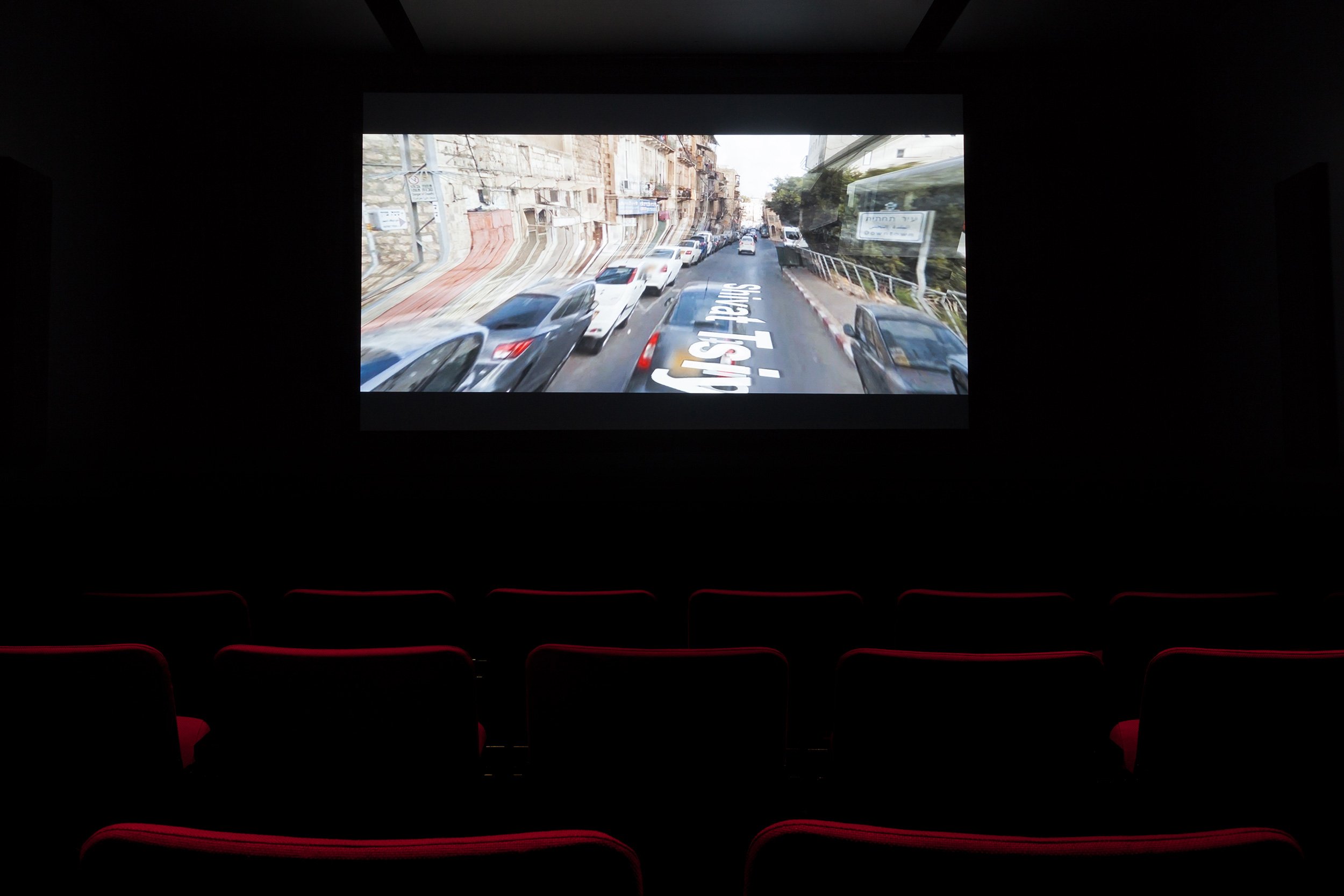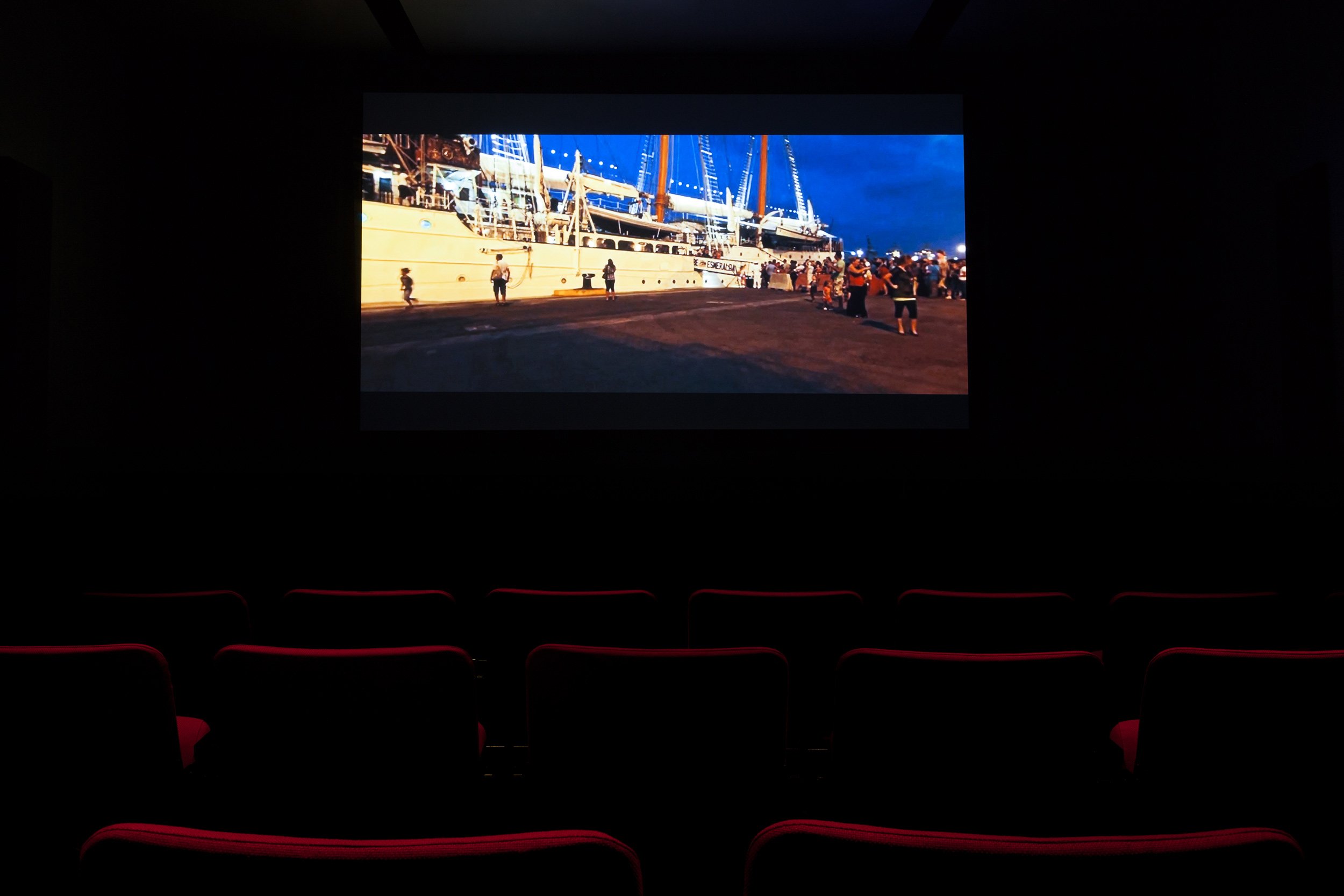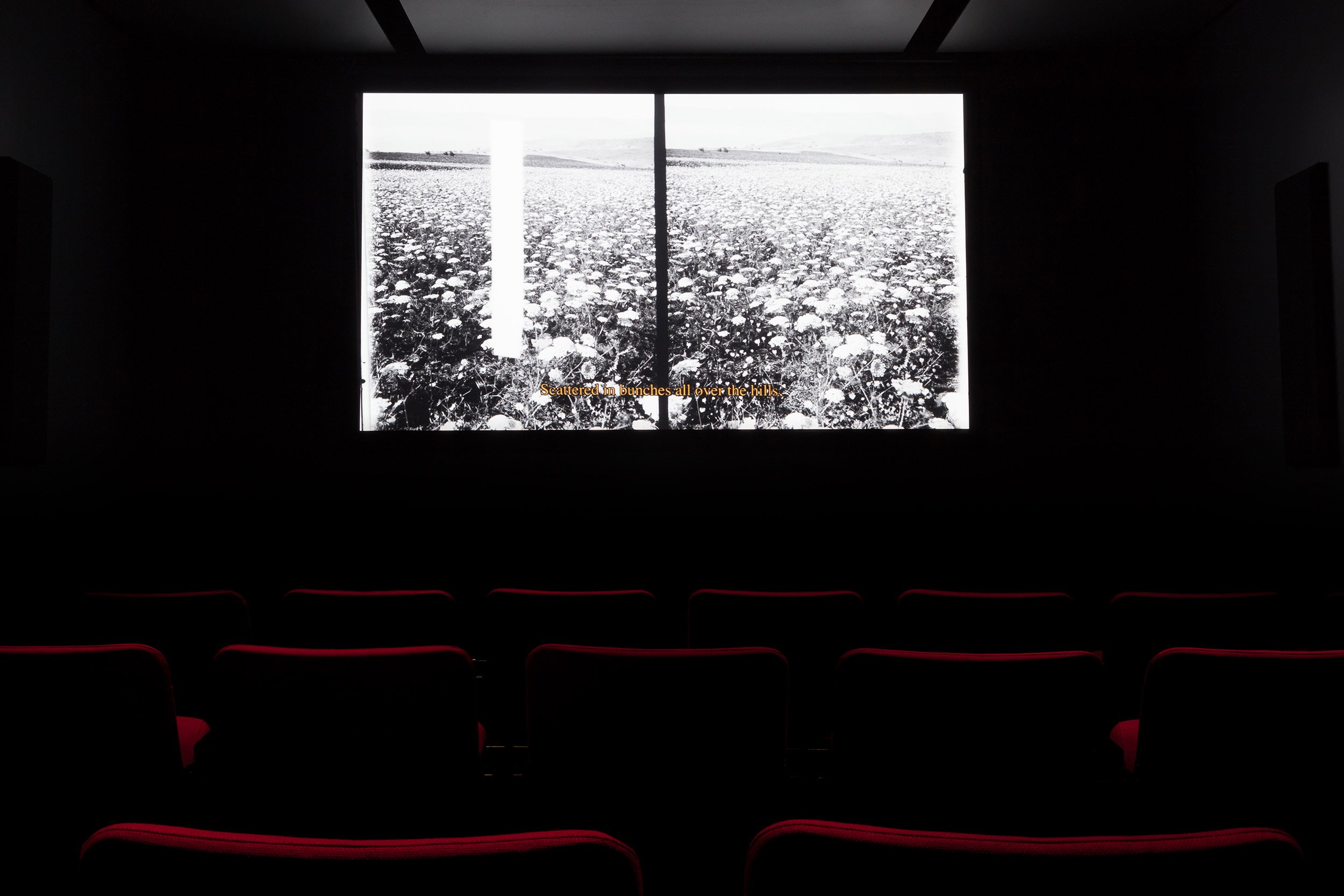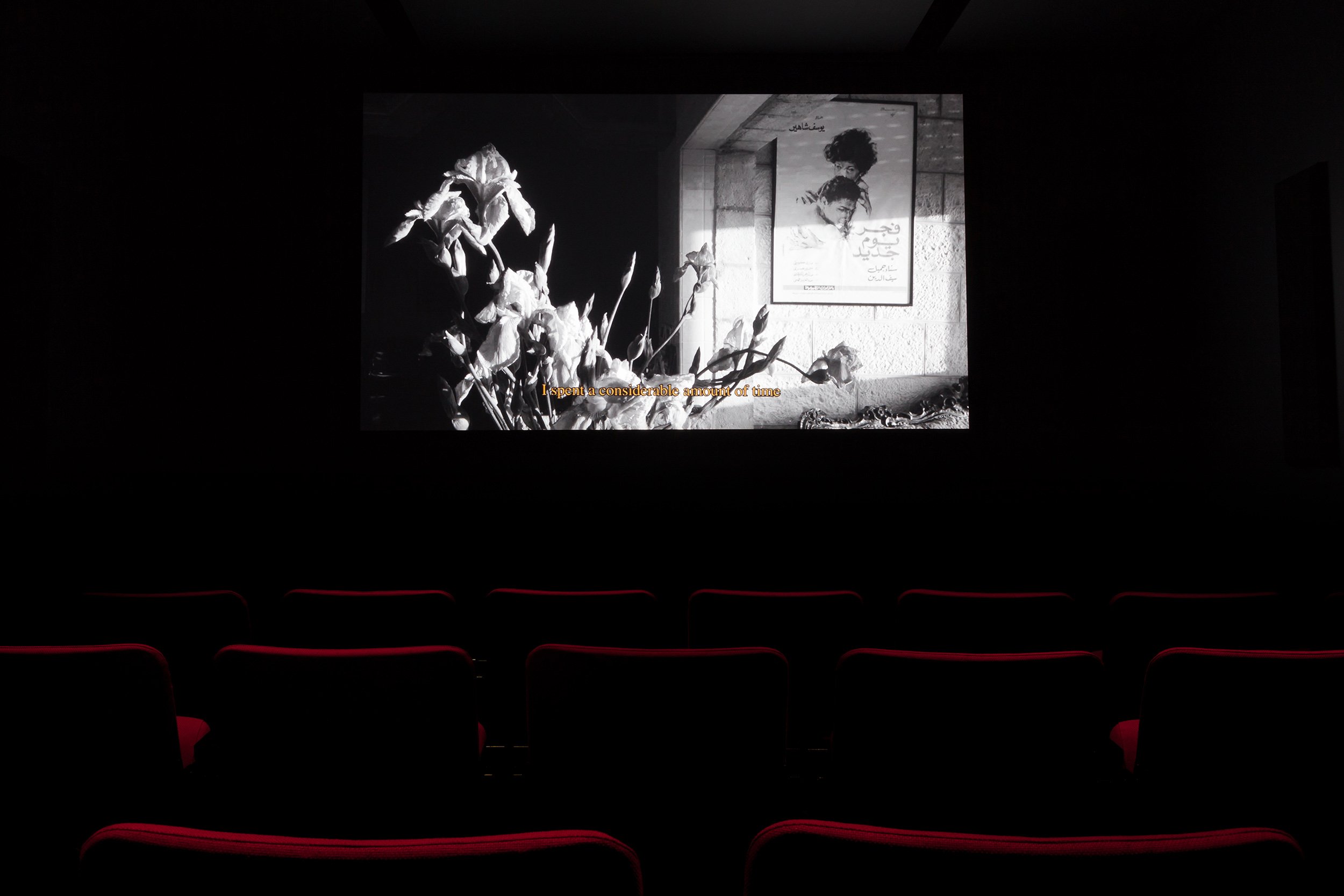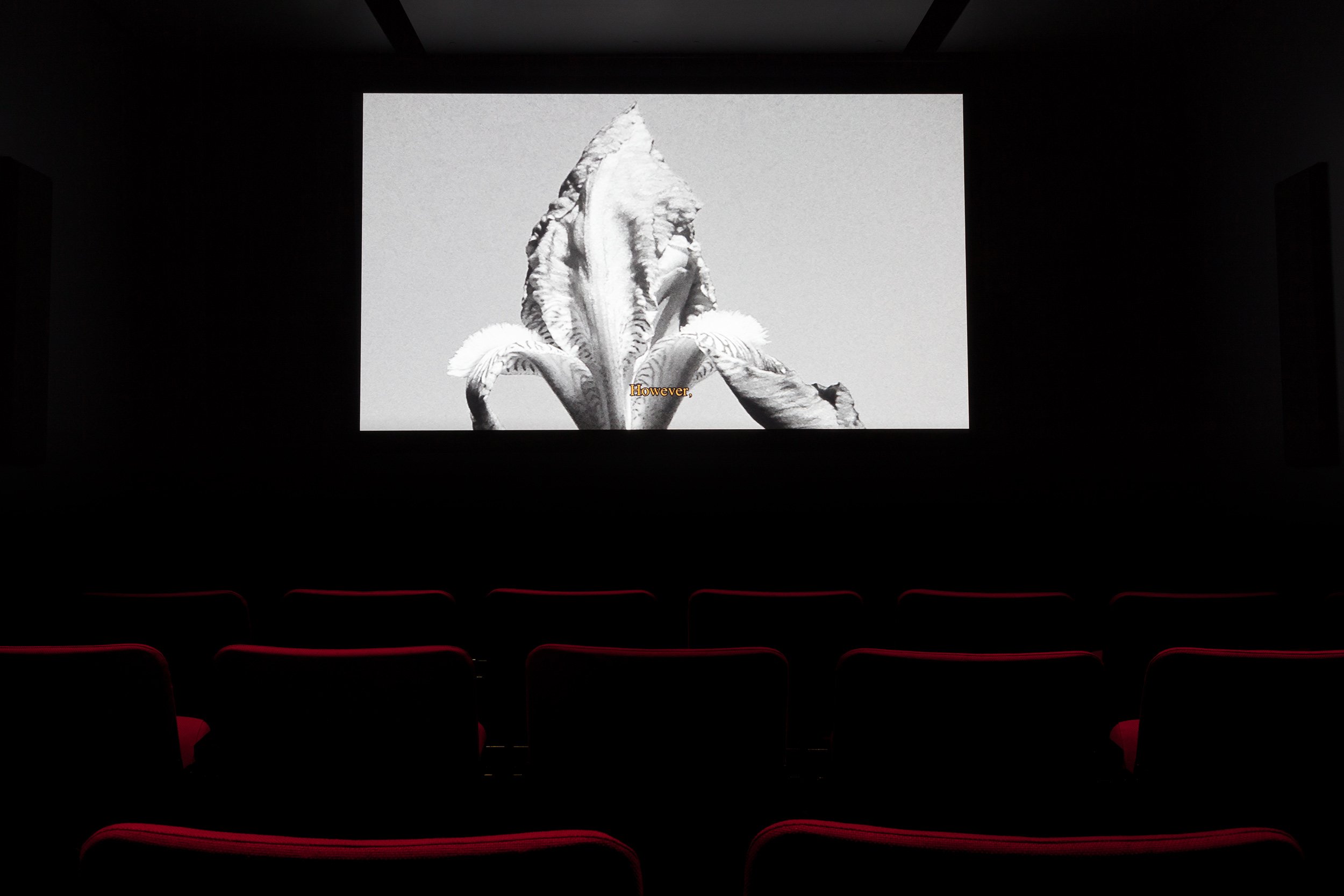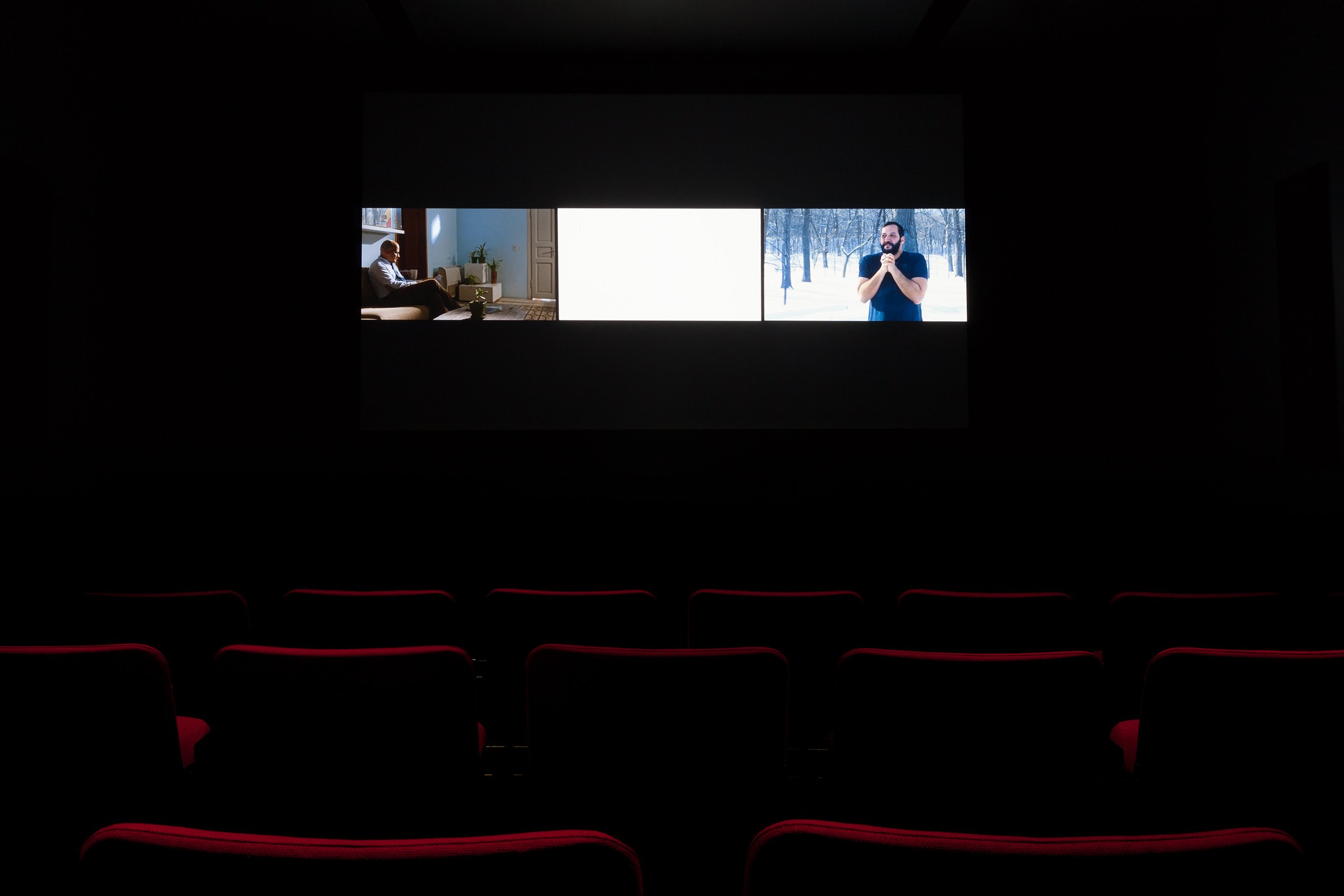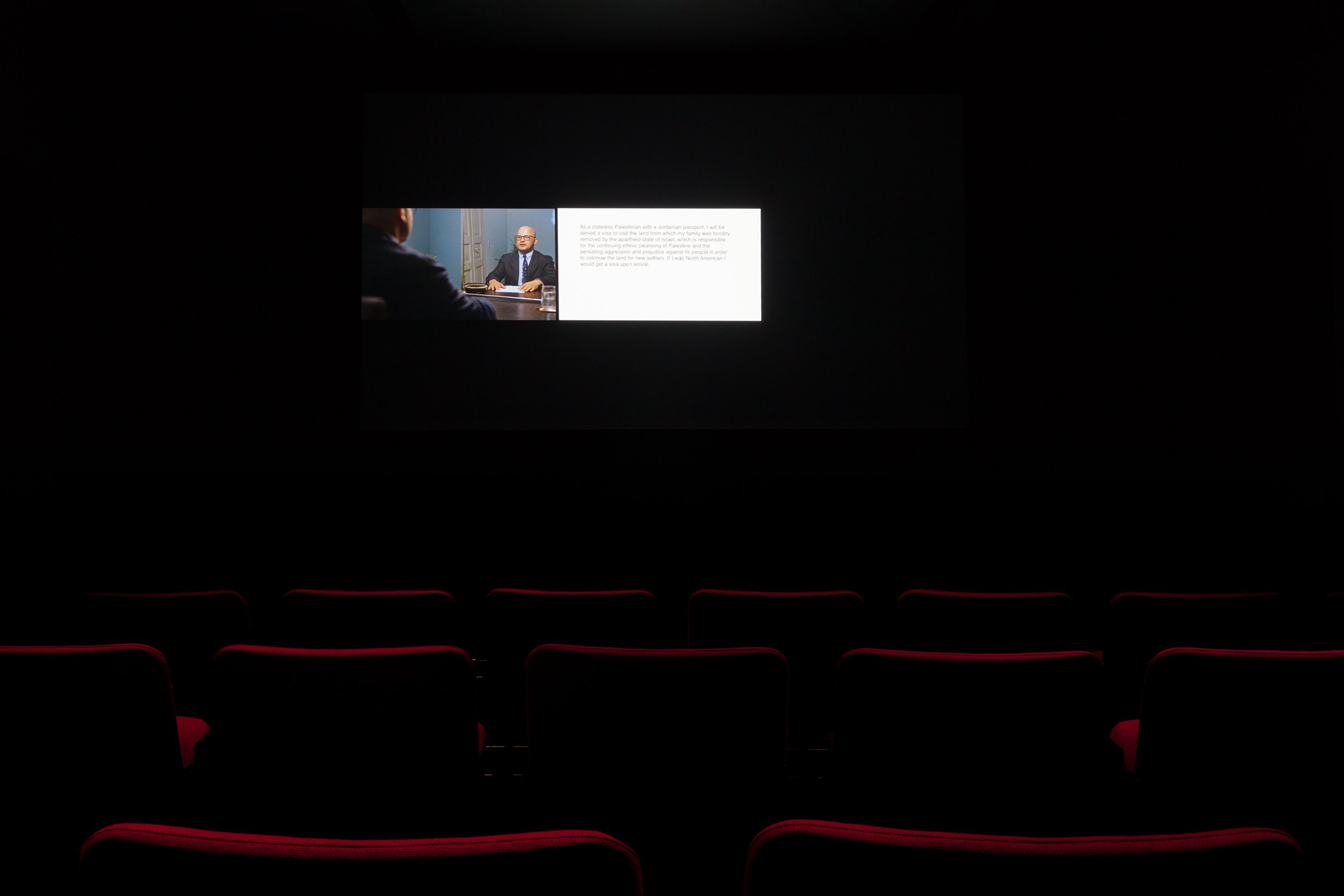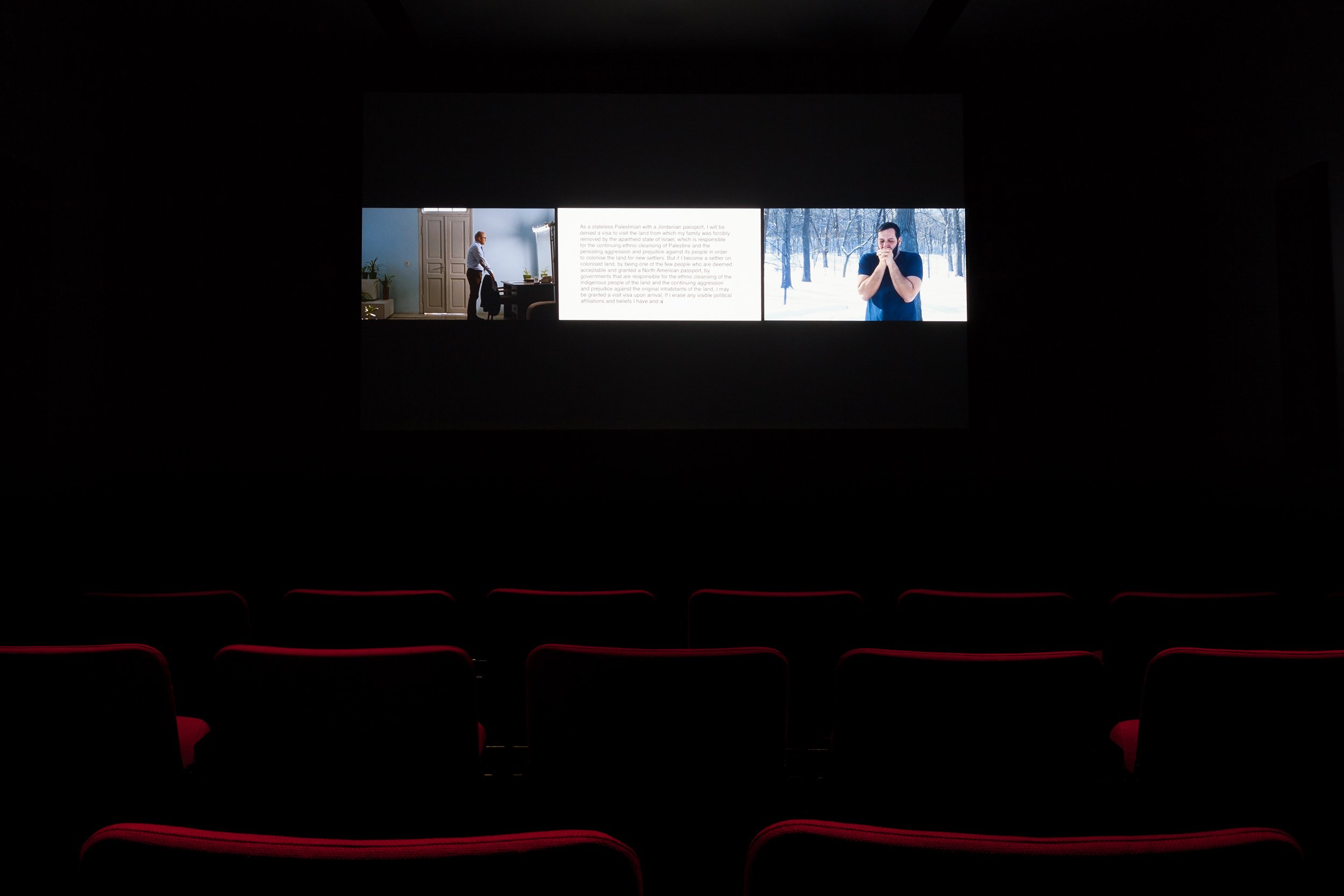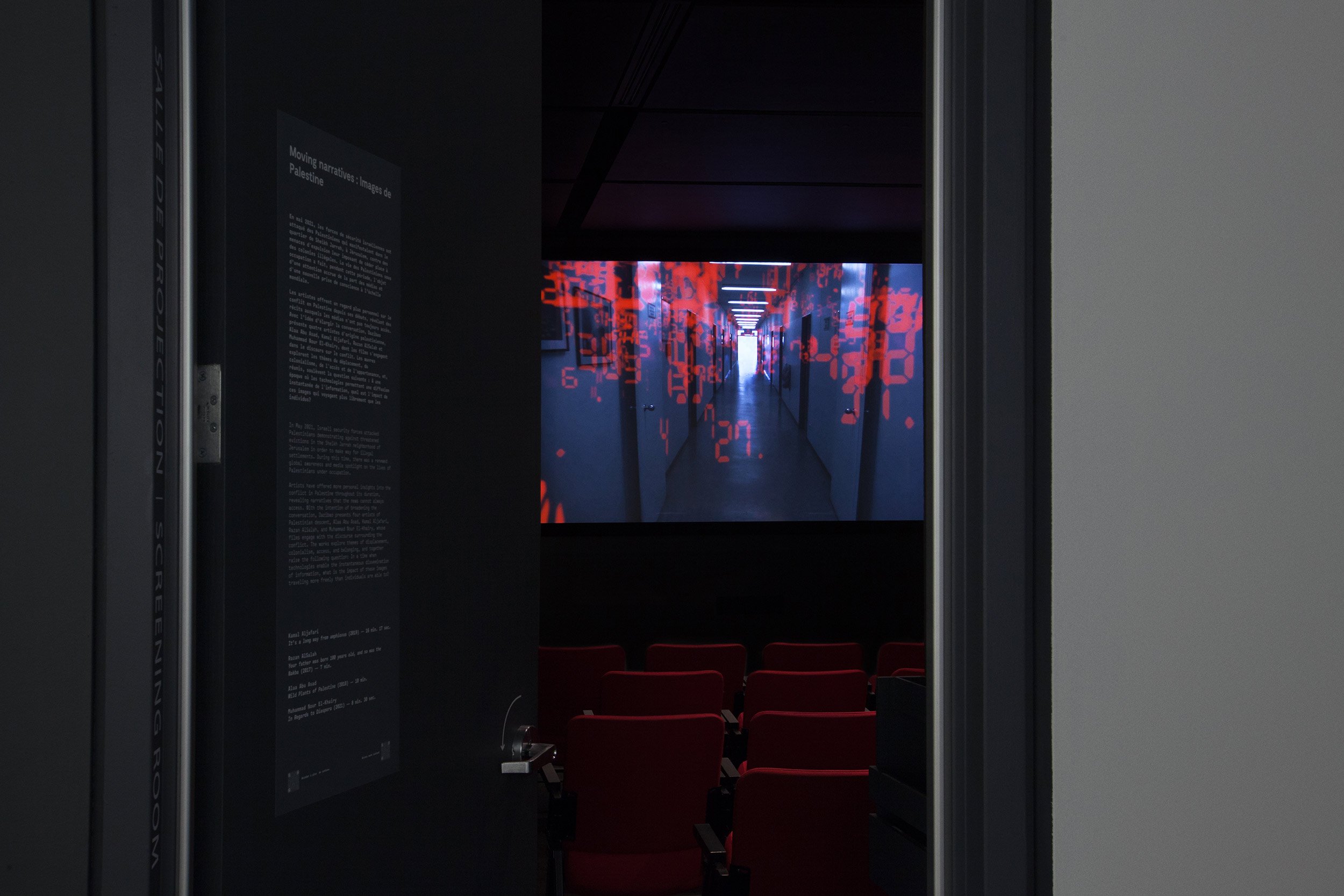Moving narratives : Images de Palestine
Alaa Abu Asad, Kamal Aljafari, Razan AlSalah and Muhammad Nour El-Khairy
From November 11, 2021 to January 15, 2022
In May 2021, Israeli security forces attacked Palestinians demonstrating against threatened evictions in the Sheikh Jarrah neighborhood of Jerusalem in order to make way for illegal settlements. During this time, there was a renewed global awareness and media spotlight on the lives of Palestinians under occupation.
Artists have offered more personal insights into the conflict in Palestine throughout its duration, revealing narratives that the news cannot always access. With the intention of broadening the conversation, Dazibao presents four artists of Palestinian descent, Alaa Abu Asad, Kamal Aljafari, Razan AlSalah, and Muhammad Nour El-Khairy, whose films engage with the discourse surrounding the conflict. The works explore themes of displacement, colonialism, access, and belonging, and together raise the following question: In a time when technologies enable the instantaneous dissemination of information, what is the impact of these images traveling more freely than individuals are able to?
Kamal Aljafari
It’s a long way from amphioxus (2019) — 16 min. 17 sec.
Families wait in dimly lit rooms, muttering and shuffling through hallways as they seek asylum in a bleak Berlin immigration centre. Aljafari’s film soberly brings us to a bureaucratic world without time, where people’s identities are reduced to numbers and bodies occupy a dull space. Including just one brief but powerful moment of dialogue, It’s a long way from amphioxus is disorientating; it invites the audience to share a moment of being in-between with those waiting to receive asylum.
Kamal Aljafari is a Palestinian artist based in Berlin whose films explore his origins by transgressing the boundaries between documentary and fiction. Aljafari has had his work shown internationally at film festivals including Berlinale, Visions du Réel, Images Festival (Canada), Ajyal Film Festival (Doha), and the Viennale. He taught film at the New School and was the program director at the German Film and TV Academy in Berlin from 2011-2013. Aljafari participated at the Robert Flaherty Film Seminar (NYC) and was a Fellow at Harvard University’s Radcliffe Institute and Film Study. He attended the Academy of Media Arts in Cologne where he received the Friedrich-Vordemberge Visual Art Prize of the City of Cologne in 2004.
Razan AlSalah
Your father was born 100 years old, and so was the Nakba (2017) — 7 min.
A Palestinian grandmother visits her hometown of Haifa the only way she can—through Google Streetview. In Your father was born 100 years old, and so was the Nakba, AlSalah reimagines the use of Google Street View, presenting the grandmother’s visit home as a recollection of memory and digital haunting. Images of the city streets and blurred faces offer both a sense of familiarity and inaccessibility. The grandmother remarks with longing at what she recognizes and what has changed of her hometown through the stuttered movement across pixelated streets, emphasizing just how distant the reality of her life in Haifa is. In Your father was born 100 years old, and so was the Nakba, AlSalah presents an emotional narrative through a digitized and broken colonized land.
Based in Montreal, Razan AlSalah is a Palestinian interdisciplinary artist whose work is concerned with investigating material aesthetics of dis/appearance of places and people in the context of colonial image worlds. She is a 2020 Arab Fund for Arts and Culture (AFAC) Grantee and Sundance New Frontier Story Lab Fellow and Grantee, as well as the recipient of the Knight Foundation New Frontier Fellowship at Sundance, Latham Award for an Emerging Experimental Video Artist at the Ann Arbor Film Festival, and Sunbird Award for Best Narrative Short at Cinema Days Palestine. Her work has shown internationally in festivals & galleries including Rencontres Internationales du Documentaire de Montréal, HotDocs, Yebisu, Melbourne, Glasgow and Beirut International, Sharjah Film Forum, Boston Museum of Fine Arts and Sursock Museum. AlSalah currently teaches Intermedia and Moving Images at Concordia University in Montreal.
Alaa Abu Asad
Wild Plants of Palestine (2018) — 10 min.
In Wild Plants of Palestine, Abu Asad offers a photographic essay recounting observational tours to document Palestinian flora, which were performed by two professors from the Birzeit University at the request of the Palestinian Museum. The journeys took place on the postcolonial land of the West Bank, surrounded by curving terrained plots of land spilling over the hills. While documenting the flora, Abu Asad questions the territorial aspect of what is meant by the term “Palestinian,” given the colonial history of the land, and contemplates the role of photography and both its potential and limitations in representation. Through his own alluring gray scale images and archival images from early 20th century Palestine, Abu Asad delivers a unique reflection on photography and the identity of his native Palestine.
Alaa Abu Asad is an artist, researcher, and photographer based in the Netherlands. As the artist describes, his work focuses on developing alternative trajectories where notions of representation, translation, viewing, reading, and understanding intersect. Abu Asad has held several international residencies, most recently at the C. Rockefeller Centre for Contemporary Arts (Germany) and the Jan Van Eyck Academie (Netherlands). His work has been featured in ALFILM - Arab Film Festival Berlin; 5th Cairo Video Festival; All the Other Lovers, 98 Weeks/Project Space (Lebanon); Noorderlicht International Photo Festival (Netherlands), among others. Abu Asad received a BFA from the Department of Photography at Bezalel Academy of Arts and Design in Jerusalem, and his MA from the Dutch Art Institute (DAI).
Muhammad Nour El-Khairy
In Regards to Diaspora (2021) — 8 min. 30 sec.
In Regards to Diaspora is a three-screen video work that explores the artist’s journey of migration from Amman (Jordan) to Montreal (Canada). Presented as a triptych, P is for Palestine, I would like to visit, and As A (aka Cold) form a non-linear narrative that jumps back and forth between Amman and Montreal. P is for Palestine shows an unnamed man in Amman repeating difficult and politically-charged English words as he waits in an unknown ‘green room’. These decontextualized words all include the letter P— a letter that doesn't exist in the Arabic language. I would like to visit presents a text being typed on a word-processing software that, through the editing process, reveals the complexity of the simple desire to travel as a Palestinian individual. As A (aka Cold) is a meditation on the commodification of identity through the documentary film form and its effects on the racialized body.
Muhammad Nour El-Khairy is a Palestinian filmmaker from Jordan and based in Montreal. His work is concerned with the ways colonial, economic, and political power plays out in the lives of individuals as well as how moving images play a role in these power relations, through experimental fiction and non-fiction work. His films have been screened in several international film festivals and art galleries including Berwick Film & Media Arts Festival, Kaunas International Film Festival, Toronto Palestine Film Festival and the Leonard & Bina Ellen Gallery. El-Khairy holds a MFA in Studio Arts: Film Production at Concordia University, and won the Peter Lenkov Award for Script Writing in 2018.
Dazibao would like to thank Marie Saadeh — supported by the McGill Faculty of Arts Internship Award (2021) — for her contribution to the development of this project.
Dazibao thanks Alaa Abu Asad for his generous contribution to the Arabic version of the exhibition texts and Fadi Saadeh for his careful editing.
Session
Session 28
Imagining a Future: Contemporary Images and Words of Palestine
On November 25, 2021
Premiere on Facebook at 6 pm
Other exhibition
Zinnia Naqvi
From November 11, 2021 to January 15, 2022
Production-dissemination residency in collaboration with PRIM
Dazibao thanks the artists for their generous collaboration as well as its advisory programming committee for its support.
Dazibao receives financial support from the Conseil des arts et des lettres du Québec, the Canada Council for the Arts, the Conseil des arts de Montréal, the Ministère de la Culture et des Communications and the Ville de Montréal.
Dazibao acknowledges that we are located on unceded territory of the Kanien'kehá: ka Nation and that Tiohtiá: ke / Montreal is historically known as a gathering place for many First Nations, and today, is home to a diverse population of Indigenous as well as other peoples.

